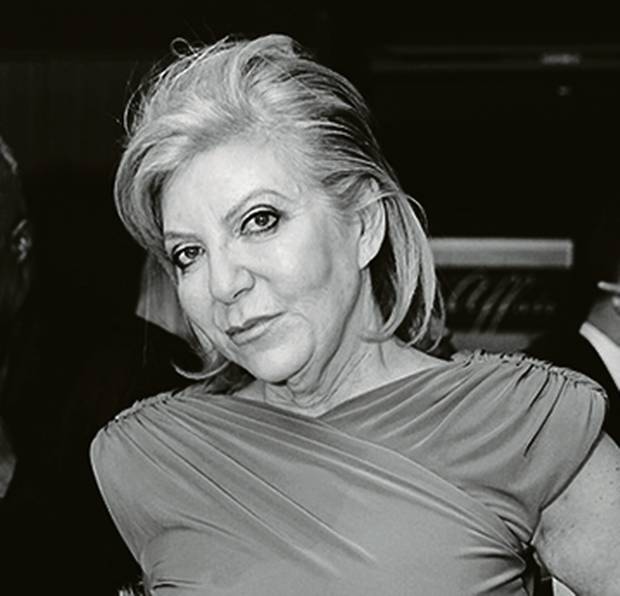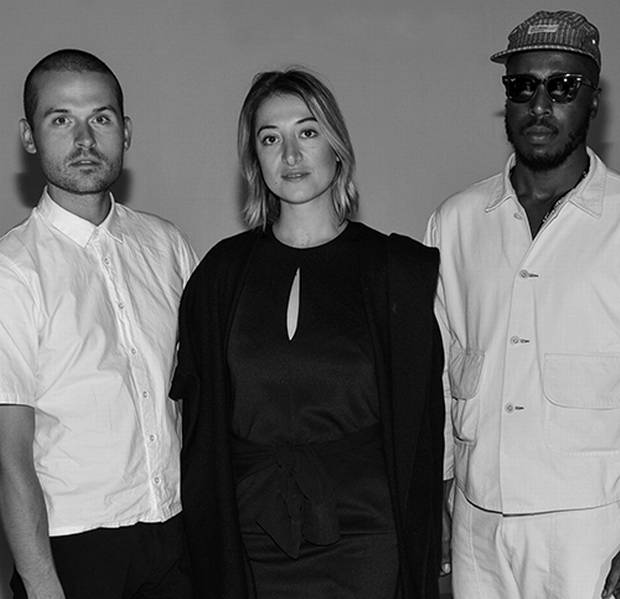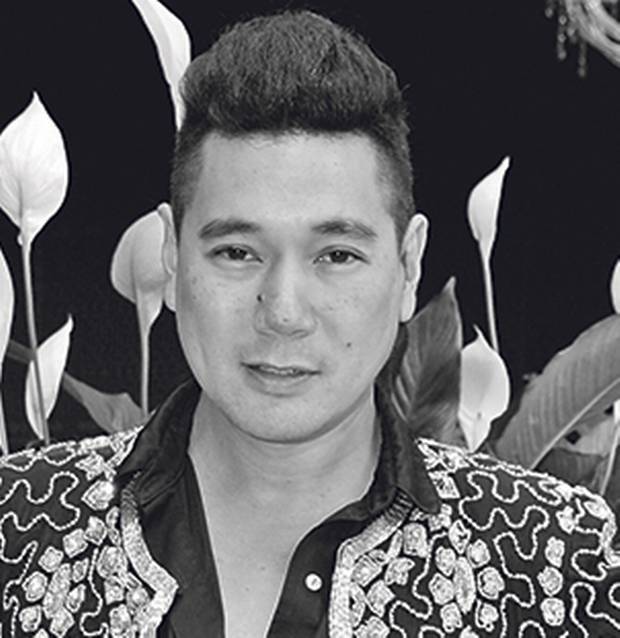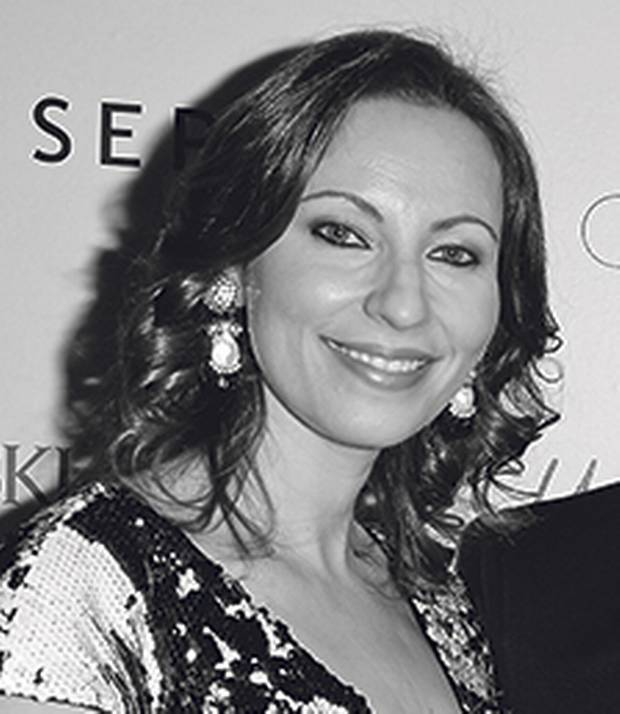Like many Canadian designers, Jennifer Torosian was looking forward to presenting her Spring 2017 collection at Toronto Fashion Week (TFW) this month. The announcement on July 7 that the event's American owner IMG was shutting it down came as a surprise to her and the industry at large. "Since it was our first season showing at TFW last March, we weren't aware of any red flags," she says.
Nor was Bernadette Morra, who, at the time, was editor-in-chief of Fashion magazine and one of the mentors for TFW's Mercedes-Benz Start Up designer competition. "The judging had already started from sketches," says Morra, who left her position at the publication last July. "I'd chosen the people that I thought should be seen by the judges."
TFW's extended family
Different factions competing for funding and talent is often cited as the key reason why Toronto's runway ambitions have floundered – even though many of the players are closely connected

The Founder: Robin Kay and her Fashion Design Council of Canada (FDCC) partner Pat McDonagh started Toronto’s fashion week in 2000. Under her watch, the biannual shows expanded to ever-larger venues and welcomed consumers and mass-market brands into the fold.
Perhaps no one was more caught off guard than Robin Kay, the woman who co-founded the most recent version of the city's fashion week and sold the catwalk event for an undisclosed amount to IMG just a few years earlier. "I would never have sold the event if I had known it was to be a four-year period," she says. "The purpose in selling the event to IMG was to build out Toronto to more global exposure. This was the promise of IMG."
In hindsight, the event's name change last March, from World MasterCard Fashion Week to simply Toronto Fashion Week, signaled the loss of sponsorship revenue that had been essential to the event's success (L'Oreal had been the title sponsor from 2002 to 2008 and LG held that position from 2008 to 2012). IMG cited a lack of local funding as the reason behind the closure. "We felt that our Canadian fashion footprint was not generating the local commercial funding that we really required in order for us to continue producing the event to the highest standard that, really, the industry deserves and the designers in Toronto deserve," Catherine Bennett, senior vice-president and managing director of IMG Fashion Events & Properties, told The Canadian Press in July. When reached by The Globe and Mail for this story, IMG declined to comment further.
But speaking with fashion insiders over the months since IMG's announcement makes it clear that there were other, more industry-wide, forces at play in Toronto. And despite concerns that TFW's cancellation might kill the city's fashion ambitions, it appears designers will emerge with more options than ever to market their collections.

The Buyer: IMG owns fashion weeks in New York, Sydney and Berlin and bought Toronto’s event from Kay in 2012. At the time, industry watchers hoped the ownership change would bring more international attention to the event, but little materialized. Carolyn Quinn, director of IMG fashion events and properties for Canada – and a former employee of Kay’s at the FDCC – managed the event.
The strategy for showcasing Canadian apparel has been evolving for decades. The Association of Canadian Couturiers held presentations in Montreal as early as 1954, and in 1956 the Garment Salesmen Ontario Market held their inaugural two-day, biannual show at the Royal York Hotel in Toronto. The event, a mix of designer booths and live presentations, was the leading showcase of Canadian fashion, especially after the Montreal organization folded in 1968. In May of 1975, The Globe and Mail reported that the Garment Salesmen Ontario Market attracted 4,000 buyers from across the country.
Ten years later, the Festival of Canadian Fashion made its debut, with 24 shows over four days. The event was sponsored by two of the country's biggest retailers, Eaton's and Holt Renfrew. Although it was initially successful, the event ended after only five years, reportedly losing $400,000. Next, cigarette company Matinée created the Matinée Fashion Foundation in 1992. The two-day event included generous grants for designers, among them Wayne Clark, Brian Bailey and Franco Mirabelli. After providing $50-million in business development funding and marketing support over 11 years, it ended in 2003, around the time a ban on tobacco sponsorship was introduced by the government.

The Saviours: The Collections – run by Dwayne Kennedy, Brian A. Richards and Mel Ashcroft – began as an offsite alternative to the main runway event, but quickly connected Kay and IMG with its fashion-forward roster of designers. After IMG pulled out, they saw the moment as an opportunity for the city to “promote Canadian fashion as the contemporary, inclusive and culturally enriching entity we know it to be.”
Robin Kay established TFW in 2000; her goal for the event was to prepare Canadian designers for the international stage. "The main focus was to get designers runway-ready and export-ready," she says. "But first, at home, to build a brand here." IMG became interested in acquiring the event soon after it took the reins of New York Fashion Week (NYFW) in 2001. Kay initially turned down its offer. "For a two-year period, IMG Canada worked as sponsorship agents along with the FDCC, and in 2011 we hired one of the IMG American fashion experts to assist and guide the production of the event in Toronto," says Kay. By the time it bought TFW outright in 2012, IMG had extended its fashion week model to other emerging style capitals including Berlin, Istanbul and Sydney. Under IMG's tenure, Toronto welcomed mass-market retailers like Sears, Target and Express into the fold, but presenting a more diverse (and less high-fashion) mix of labels neither helped grow the event's international profile nor attract buyers. "IMG is a billion-dollar global corporation. And they failed," says Kay.
"I got the impression it was pretty sudden," says Morra. "Ultimately, looking back and understanding their strategy, I get it. The last time I went to [IMG's] New York Fashion Week in February, I was stunned at how quiet the environment was." She recalls that just a few years earlier, the venue was packed with sponsors. "They had completely scaled back sponsorships. When I asked about it, they said this was their strategy and that they wanted fewer, but more relevant sponsorships with deeper connections to the guests." (According to FashionUnited.com, NYFW is said to attract 150,000 attendees.) "Many of those people are going to make up a much more powerful group in terms of amplification of the hashtags and the sponsorship promotions," says Morra. "Could the 30,000 in Toronto come anywhere near those numbers? No."
Despite IMG's efforts to keep TFW going (at the last round of shows, consumers could buy tickets ranging in price from $45 to almost $1,000), a source that worked on the event and asked to remain anonymous says the financial loss was too great. "Their parent company is [California-based talent agency] William Morris Endeavor," says the source. "If [IMG is] coming back and losing $50,000… I know it cost them a fortune to build those tents." Unlike Kay, IMG had no emotional involvement in the event.

The Outsider: Overseen by executive director Jeff Rustia, Toronto Men’s Fashion Week (a.k.a TOM) stages two rounds of shows each year. After IMG’s announcement, TOM’s advisory council member Roger Gingerich told The Canadian Press, “I received many, many phone calls from sponsors going, ‘Roger, where do I move my sponsorship funds to?’” In February 2017, TOM will present women’s-wear collections alongside its men’s lines.
When Kay and her FDCC co-founder, the late designer Pat McDonagh, launched the inaugural TFW in 2000, the City of Toronto was a founding co-sponsor, but government involvement has waned over the years. In the end, City Hall's contribution was the David Pecaut Square site where TFW erected its runway tents. Still, fashion week's cancellation raised alarms among local officials. "The City was of course concerned when we heard the IMG announcement, and on July 14, City Council adopted a Supporting the Growth of Toronto's Fashion Sector motion," writes Toronto's design sector advisor Laurie Belzak in an e-mail. The motion asks that council request the general manager of economic development and culture to consult with the fashion sector on the impact of the cancellation on the industry's growth, call a meeting to discuss the next steps, and file a report in the first quarter of 2017, including best practices used by foreign governments in their fashion sectors. Belzak goes on to highlight that while the city has not been actively involved in TFW, it is a co-sponsor of the Toronto Fashion Incubator (TFI), an organization established in 1987 that provides subsidized studio space and other business development for designers. The TFI's Press & Buyers tradeshow was part of the official TFW calendar and will still run on Oct. 18 at One King West, a hotel in the financial district.
Mercedes-Benz will not continue with its Start Up competition, however. "It was with regret that Mercedes-Benz Canada learned that IMG was saying goodbye to the fashion scene in Canada," wrote the company's public relations supervisor Nathalie Gravel in an e-mail. "Unfortunately, the Mercedes-Benz Start Up program can no longer continue to exist since its turnkey platform was fully owned and produced by IMG Canada." The initiative involved a countrywide search for emerging design talent. After regional competitions, the finalists would battle it out on the TFW runway every October for a $30,000 cash prize and a fully produced runway presentation the following spring. Last year's winners, Simon Belanger and Jose Manuel St-Jacques of the Montreal label Unttld, went on to score the Swarovski Award for Emerging Talent at the annual Canadian Arts and Fashion Awards (CAFAs) last April.
IMG took over TFW in 2012, at a time when most major fashion weeks were following a long-established model in which designers would show next season's collections six months ahead of their retail availability. Since then, many brands at all price points of the fashion spectrum – from Topshop to Rebecca Minkoff to Burberry – have adopted the see-now, buy-now model where clothes are available to purchase as soon as they appear on the runway. This year's NYFW introduced pop-up shops at key venues. Kay believes some of those components could have been introduced to Toronto by IMG.

The Designers: Publicly, Toronto’s designers haven’t collectively taken any steps to fill the fashion week void. Instead, some have said the loss of a centralized event may help the local industry leapfrog over the competition, eschewing pricey catwalk events in favour of digital and direct-to-consumer strategies.
Most recently, Kay has acted as a mentor for The Collections, a Toronto-based creative services group with a roster of emerging talent that includes the up-and-coming Torosian, the award-winning Sid Neigum (recently deemed "one to watch" by Vogue), and Chloé and Parris Gordon, the internationally acclaimed sisters behind Beaufille. When the IMG announcement was made, many fashion insiders looked to The Collections to take over fashion week, since their designer roster made up a significant portion of the TFW schedule. There was also a push for uniting different factions of the city's industry to present a more cohesive picture of local talent.
FashionCAN, a two-day event organized by Yorkdale Shopping Centre and CAFA in collaboration with The Collections will attempt to unite the industry with shows on Oct. 16 and 17. "We leapt at the chance to address a gap in the Canadian fashion calendar. Shoppers can now engage with Canadian fashion like never before and access the newest designs almost directly from the runway. This is good for our designers and the Canadian fashion industry as a whole, and makes a critical connection between fashion shows and sales," says Yorkdale's marketing director Lucia Connor.
The initiative will introduce the see-now, buy-now model to the city by providing a pop-up retail space where consumers can purchase current season garments as well as pre-order items for spring. FashionCAN's runway will host many TFW regulars including Bustle, Stephan Caras, Mackage, Mikhael Kale and Pink Tartan.

The Promoter: Under the watch of president Vicky Milner, the Canadian Arts & Fashion Awards have eclipsed Toronto’s catwalk shows as the industry’s biggest booster. The organization partnered with The Collections and Yorkdale Shopping Centre to present Spring 2017 shows on Oct. 16 and 17, which will mark the opening of the mall’s new 300,000-square-foot retail wing.
Photos by Jenna Marie Wakani; Teddy Chau; Mark Blinch/The Canadian Press via AP; George Pimentel.
In the weeks following IMG's cancellation announcement, speculation was rampant about who else might step in to capture a piece of fashion week's audience and remaining sponsorship pool, and a few other players are emerging. On Aug. 20, the organizers behind Toronto Men's Fashion Week (TOM) announced that they are planning to introduce a women's-wear component to their schedule in February. In late September, rumours started circulating that IMG sold the TFW event to a Toronto real estate developer with a history of involvement in the city's fashion weeks. It's safe to say that, despite the industry's initial fears, Toronto will not be wanting for fashion shows in the foreseeable future.
"The appetite is there and the talent is there," says Morra. "Now it's just a matter of refining and reconfiguring the business model so that it makes sense in today's see-now, buy-now world."